10 Best IT Ticketing Systems | Simplify Support & Service
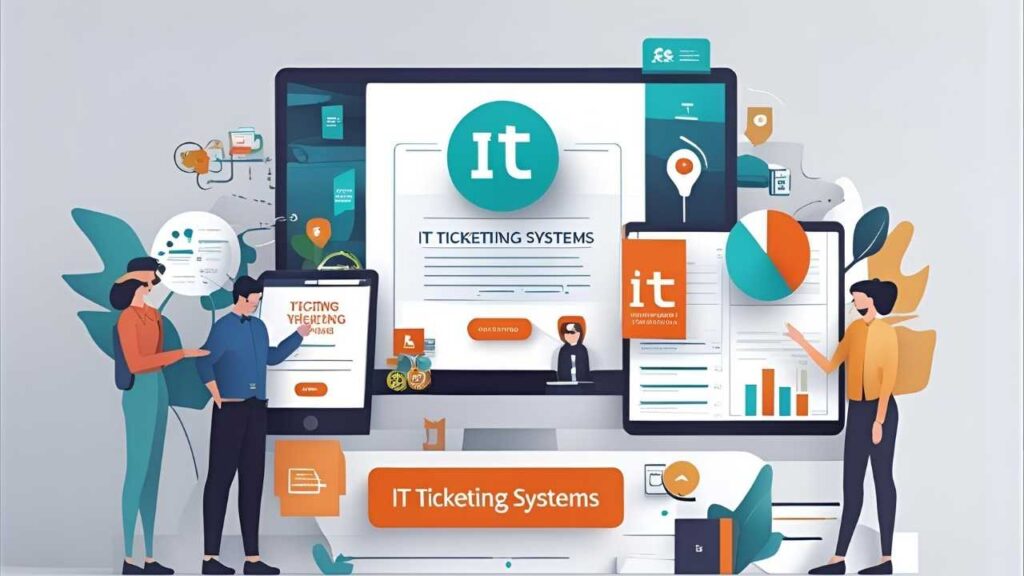
Contemporary companies have to struggle with an exponentially growing number of IT-related challenges, including software malfunctions and system hardware errors, network unavailability, and cyberattacks. Unless handled as a structured process, the IT departments will easily find themselves gasping to keep u, and this results in dissatisfied users, a loss in productivity, and delayed resolution of the requests.
The IT ticketing systems environment is changing fast as we enter 2025. Artificial intelligence, automation, and advanced analytics are transforming the way organizations approach IT support tickets to the extent that issues can be resolved sooner and more effectively than previously possible. Learning the present situation with ticketing systems and ways to select the solution that best suits the needs of a particular organization has also become important in a bid to sustain the competitive strategies of any organization.
What is an IT Ticketing System?
An IT ticketing systems is a centrally located software-based tool that is used to track, receive, resolve, and manage IT-based requests and incidents within an organization. These systems translate the different media of communication, be they emails, phone calls, web forms, or chat messages, into standardized tickets, which can be tracked, prioritized, assigned, and which can be resolved systematically.
Essentially, an IT ticketing solution is an IT workflow engine that coordinates every IT request through to completion under the same process. When a user has a technical problem/they create a request via the system, and the system automatically creates a unique ticket with appropriate details like the ticket priority level, its category, and assigned technician. This ticket is a record in its entirety of the problem, including all the messages, the attempts to troubleshoot the problem, and the final fix.
Key Features of IT Ticketing Systems
- Automated Ticket Creation and Routing: Intelligent systems classify incoming requests on the various channels into standardized tickets and direct them to the relevant IT personnel depending on their skill plans and workload, and availability.
- Priority and SLA Management: Priority classification systems are built into the system; thus, important issues are addressed on a real-time basis, and response and resolution times within the organization level are tracked via Service Level Agreement (SLA).
- Knowledge Base Integration: Inquisitive self-service channels are where users get to discover their solutions, and this is, in turn, given to the IT aid that offers searchable pools of answers and problem-solving dance steps.
- Real-time Reporting and Analytics: The report and detailed dashboards give insights into ticket volumes, resolution times, and team performance, as well as issues that are being trended to assist in data-driven decision-making.
- Mobile Accessibility and Collaboration: New technologies provide mobile applications and integration capabilities that allow the IT department to perform effectively remotely at all times and maintain contact with the end-users and other employees.
Types of IT Ticketing Systems
- Cloud-based IT Ticketing Systems: Such hosted solutions do not require on-premise infrastructure and are known to provide easy deployment, auto-files, and scalable pricing, which make them suitable in the context of growing organizations.
- On-premises IT Ticketing Systems: Self-hosting solutions are both the most controllable and customizable, thus they are appropriate for high-security or complex-integration needs.
- Hybrid IT Ticketing Systems: Such soft platforms mix the ease of clouds with on-premises governance so that frameworks can keep sensitive information in-house even as they take advantage of the scale of cloud operations on other enterprises.
- Industry-specific IT Ticketing Systems: Specific solutions, such as those provided to a particular industry, such as healthcare, finance, or manufacturing, will have compliance functionality and industry-standard workflows built in.
- Enterprise IT Service Management (ITSM) Platforms: Suites that go beyond plain ticketing to provide asset management, change management, and strategic IT governance functions to enterprises with large enterprises.
Top 10 IT Ticketing Systems in 2025
1. Freshdesk
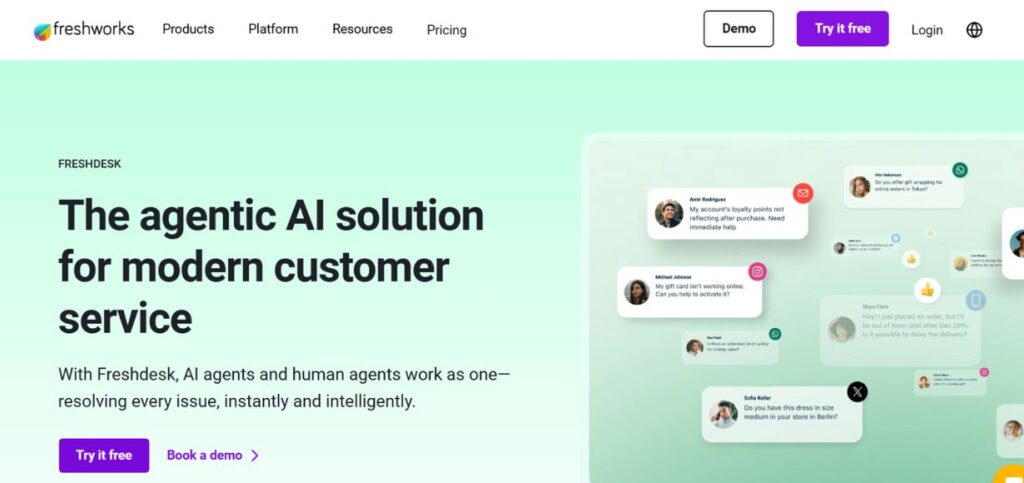
Freshdesk is one of the most popular IT ticketing services that more than 73,000 companies across the world use, as it has a full-featured solution built based on the Freddy AI. The system does well in automating customer interaction into structured, tracked tickets as well as setting an advanced automation feature, which minimizes customer response times by 83%. It has an easy-to-use interface that only needs a short training, which is why it is suitable for both experienced and inexperienced IT teams. It is an integration of robust ticketing and self-service portal, underpinning the knowledge base, and in-depth analytical solutions.
Key Features:
- Omnichannel unified inbox
- Freddy AI automation
- Advanced workflow management
Pros:
- User-friendly interface design
- Strong automation capabilities
- Flexible pricing plans
Cons:
- Limited mobile features
- Basic reporting customization
- No workforce management
Best for: Scalability
Pricing: Starting at $15 per agent per month
Website: http://freshdesk.com
2. ServiceNow IT Service Management
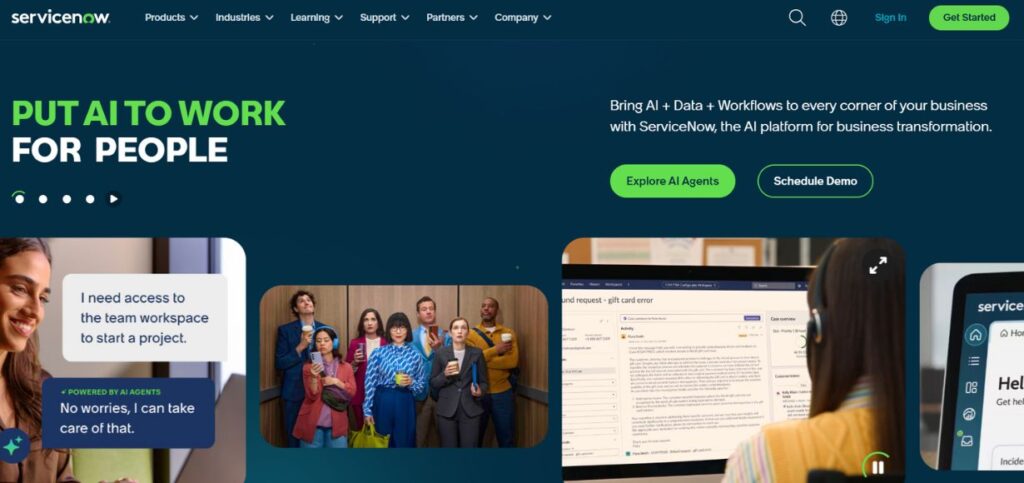
ServiceNow is the enterprise reference to IT service management with a comprehensive platform that goes well beyond simple ticketing. The system offers powerful workflow automation, complex AI-based analytics, and comprehensive deep integration that fits large organizations with complex information technology settings. The advantage of ServiceNow is that it can manage complex or elaborate approval flows, change management lifecycle, and compliance solutions. The product has good incident management, problem management, and service catalog capabilities.
Key Features:
- Automation of workflow in the enterprise
- Best in class AI analytics
- Enterprise ITSM solution
Pros:
- Very flexible platform
- Enterprise-grade security
- Broad options of integrations
Cons:
- Difficult implementation process
- Total ownership-high:
- Learning cliff
Best for: Enterprises
Pricing: Custom pricing based on requirements
Website: http://servicenow.com
3. Jira Service Management
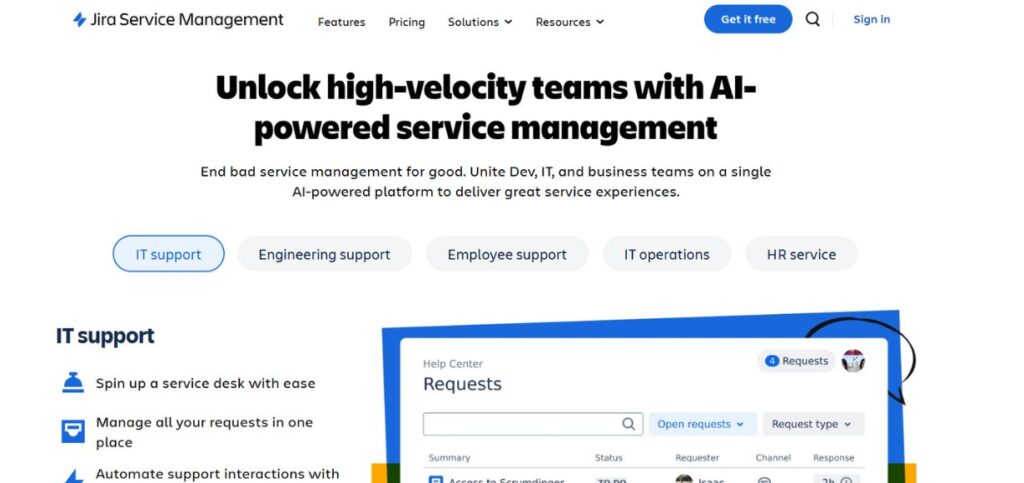
Building on the years of experience that Atlassian has in project management, Jira Service Management will be an immensely effective IT ticketing solution with a built-in ability to integrate functionality with other workflows, development, and operational workflows. The platform is very useful in addressing the divide between IT service delivery and software development, thus making it of great value to DevOps teams and organizations that adhere to agile approaches. Considering that it was designed on the powerful Jira platform, it is highly customizable with great reporting and integration with the commonly used development tools.
Key Features:
- DevOps integration of workflow
- Connected project agility
- Automation of incident response
Pros:
- Well-integrated development
- Extremely configurable workflows
- Superb reporting functions
Cons:
- Heavy for enterprise practitioners
- Resource-intensive platform
- Poor mobile capability
Best for: Development
Pricing: Starting at $20 per agent per month
Website: https://www.atlassian.com/software/jira/service-management
Also read: Top Data Analytics Companies in India
4. Zendesk Support
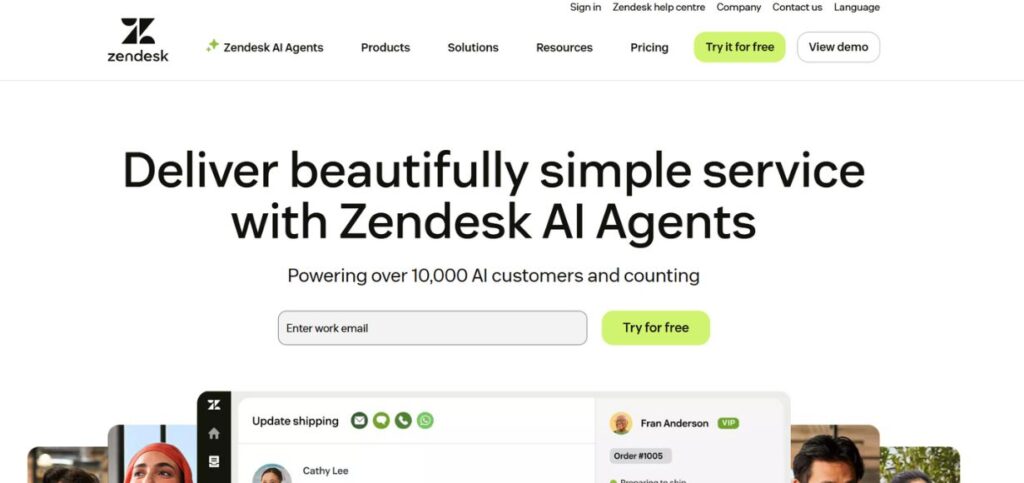
Zendesk has positioned itself as one of the most popular customer service platforms with powerful IT ticketing systems that support organizations that are focused on user experiences. Combining a clean, user-intuitive interface with full-scale automation capabilities and AI-enhanced tools, the system can support IT teams in the most effective way to manage tickets. This omnichannel strategy by Zendesk makes such requests that come through emails, chats, phone, and social media be combined in a single, common workspace. The platform provides more advanced functionalities such as full-scale triage, automatic ticket distribution, and collaboration tools that allow contact to operate it in the same direction.
Key Features:
- Omnichannel ticket management
- AI-powered automation tools
- Collaborative workspace features
Pros:
- Intuitive user interface
- Strong automation features
- Comprehensive analytics dashboard
Cons:
- Fragmented user interface
- Complex pricing structure
- Limited customization options
Best for: Usability
Pricing: Starting at $19 per agent per month
Website: http://zendesk.com
5. ManageEngine ServiceDesk Plus
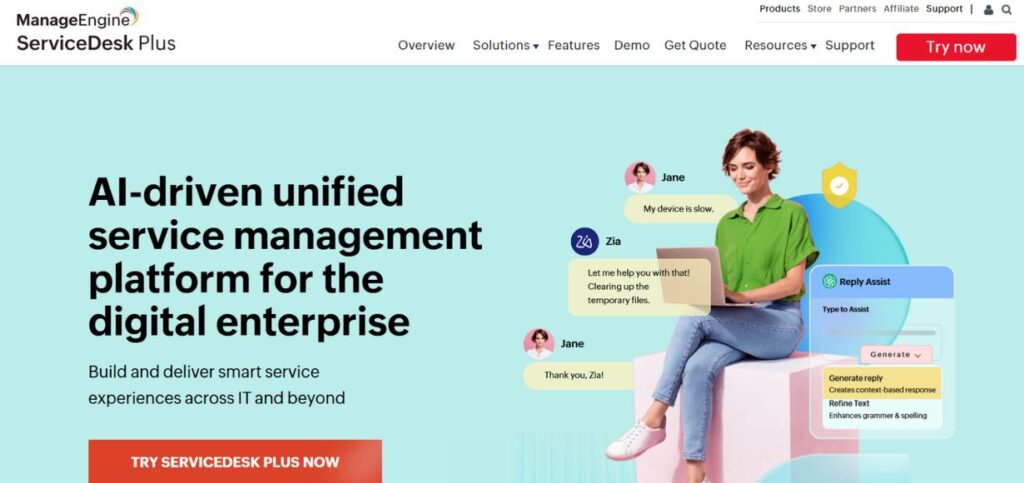
ManageEngine ServiceDesk Plus ensures complete features of IT service management that are based on affordability and simplicity. The platform integrates conventional ITSM functions with recent capabilities such as AI-based automation and mobile. ServiceDesk Plus has superior asset management integration, and it offers an IT team complete visibility of their infrastructure and address support requests. The system has built-in change management, project management, and service catalog, among others, and this makes it surpass the value of simple ticketing.
Key Features:
- Integrated asset management
- Built-in change management
- AI-powered automation features
Pros:
- Affordable pricing model
- Comprehensive ITSM features
- Strong asset integration
Cons:
- Outdated user interface
- Limited mobile capabilities
- Basic reporting options
Best for: Budget
Pricing: Starting at $10 per technician per month
Website: http://manageengine.com/products/service-desk/
6. SolarWinds Service Desk
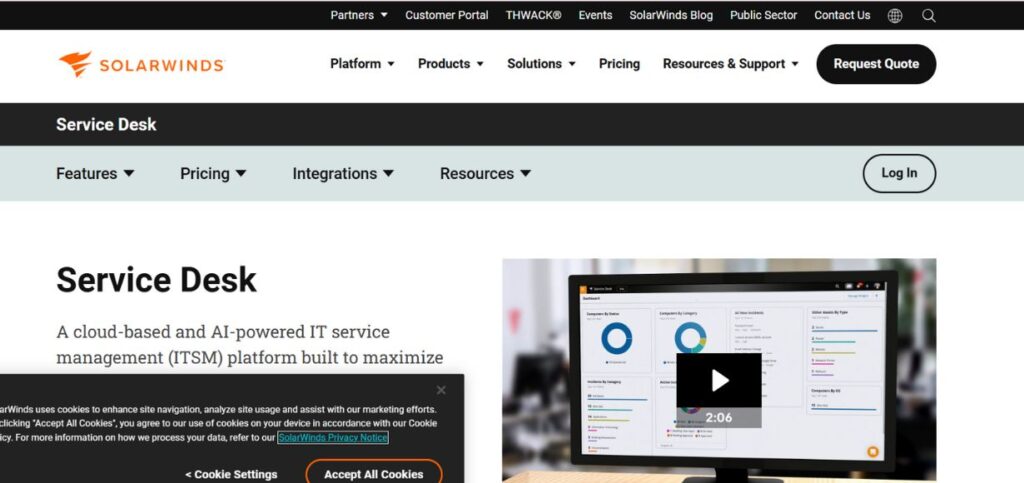
SolarWinds Service Desk offers the ability to integrate the company’s practices in network monitoring with a full-featured IT service management platform. The platform provides an easy integration with SolarWinds monitoring tools, where infrastructure alerts can automatically create a ticket, as well as incorporate contextual information into infrastructure alerts and allow IT teams to resolve the problems faster. It offers an up-to-date, web-based interface, has mobile support, and has asset management, change management, and service catalog functions built in.
Key Features:
- Network monitoring integration
- Automated alert ticketing
- Comprehensive asset tracking
Pros:
- Strong monitoring integration
- Modern web interface
- Competitive pricing structure
Cons:
- Limited third-party integrations
- Basic automation capabilities
- Minimal customization options
Best for: Monitoring
Pricing: Starting at $39 per technician per month
Website: http://solarwinds.com/service-desk
Also read: Top Salesforce Automation Software
7. BMC Helix ITSM
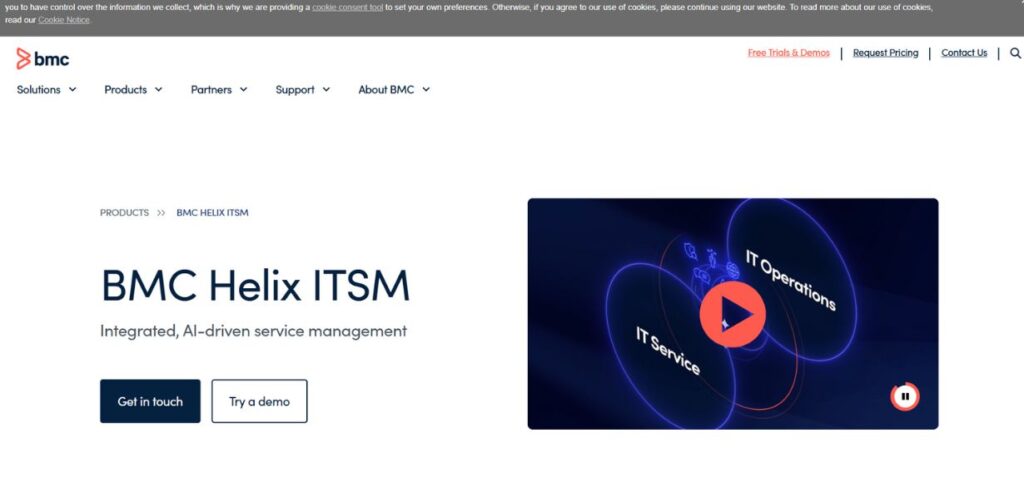
BMC Helix ITSM is covered with a cloud principle of enterprise IT service management, working on the principles of modern architecture and powered by artificial intelligence. The platform provides IT service management features with full capabilities of incident management, problem management, change management, and service catalog. BMC Helix is an effective tool in processing complicated enterprise needs with advanced workflow automation, compliance tracking, and integration. The system also has high AI capabilities of predictive analytics, auto classification, and intelligent routing.
Key Features:
- Cloud-native architecture design
- AI-powered predictive analytics
- Enterprise workflow automation
Pros:
- Modern platform architecture
- Advanced AI capabilities
- Enterprise-grade scalability
Cons:
- High implementation complexity
- Expensive licensing model
- Steep learning curve
Best for: Architecture
Pricing: Custom pricing based on requirements
Website: http://bmc.com/it-solutions/bmc-helix-itsm.html
8. Spiceworks Help Desk
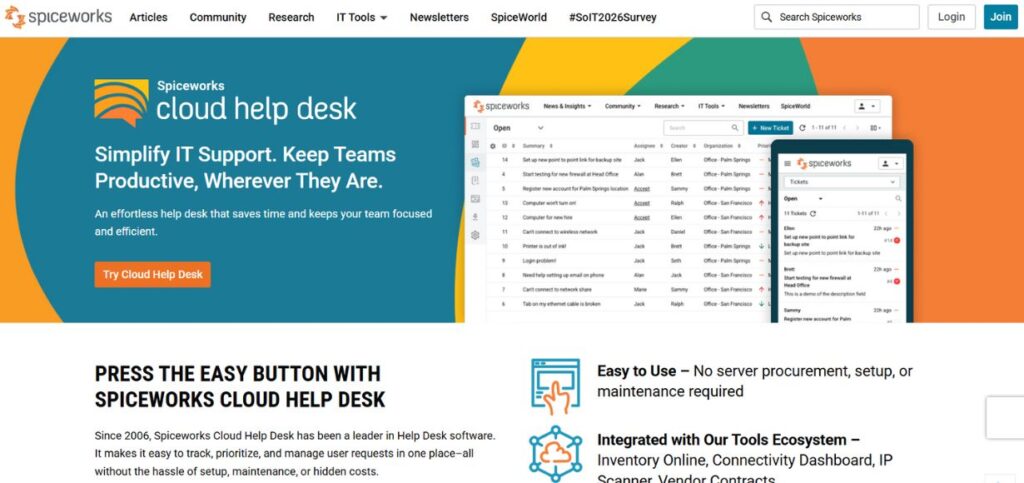
Spiceworks Help Desk is well-positioned with its value proposition since it is a free IT ticketing solution with sponsorship financing and a community approach. The platform is free, although it has built-in strong ticket features, asset management integration, and a user portal capability that competes with paid options in the market. The system works in sync with the Spiceworks network monitoring and inventory tools and provides IT teams with visibility into their network.
Key Features:
- Completely free platform
- Community-driven support system
- Integrated asset management
Pros:
- Zero licensing costs
- Strong community support
- Good basic functionality
Cons:
- Advertisement-supported model
- Limited advanced features
- Basic reporting capabilities
Best for: Free
Pricing: Completely free with community support
Website: http://spiceworks.com/free-help-desk-software/
9. Kayako
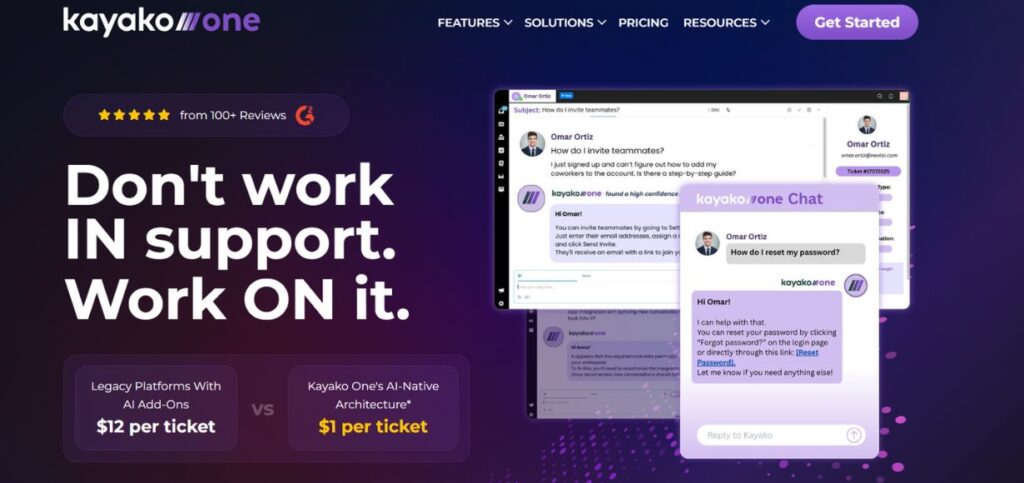
Kayako is a customer-focused company specializing in providing an eponymous experience to customers by offering an all-inclusive customer care facility in terms of offering IT ticketing facilities and more. The system’s focus is on the customer journey and has a prospective focus by allowing the team involved in IT to have a full view of interactions and the history thereof of the customers. The strengths of Kayako are that it can manage complicated multi-touch support situations without breaking context across all the interactions. The platform is AI-based, allowing tailoring of workflows and collaboration tools that enable IT teams to provide quality and consistent support.
Key Features:
- Customer journey tracking
- AI-powered response automation
- Unified interaction history
Pros:
- Strong customer focus
- Good collaboration tools
- Comprehensive interaction tracking
Cons:
- Outdated user interface
- Limited customization options
- Higher pricing tiers
Best for: Experience
Pricing: Starting at $79 per month
Website: http://kayako.com
10. Hiver
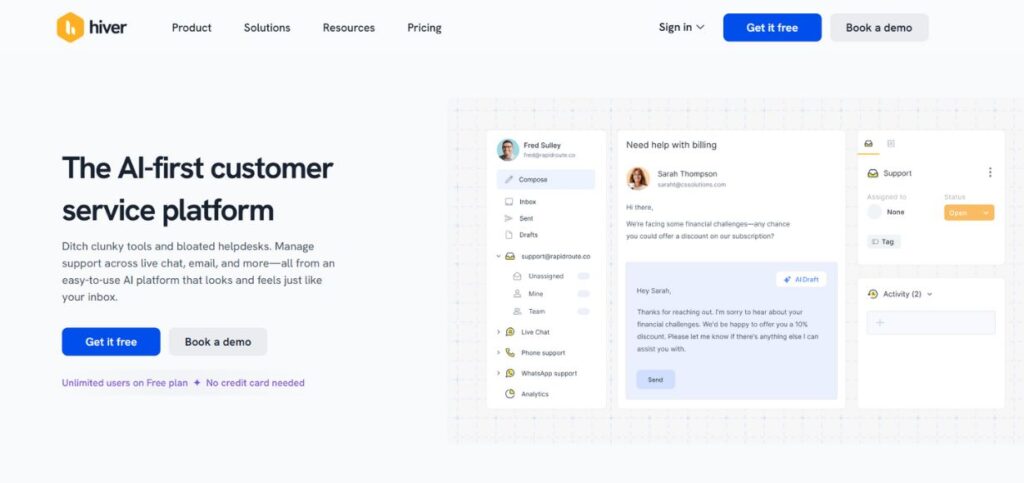
Hiver is not just another IT ticketing software; it makes ticketing a part of Gmail and, therefore, does not require users to switch to another program. The configurable approach allows IT departments to work with tickets in Gmail itself, but add functionality like the possibility to track assignment, detect collisions, and analyze performance. It is particularly attractive to companies that have heavily invested in Google Workspace, as it can be easily integrated with the existing processes without the user having to familiarize herself with a different interface. The platform contains automation functions, SLA monitoring and reporting functionality, and is professionally ready and enterprise-prepared to support the Gmail environment.
Key Features:
- Ticket management based on Gmail
- Collision warning system
- Automation tools
Pros:
- Common Gmail interface
- Simple adoption of teams
- Great teamwork functionalities
Cons:
- Restricted to email
- Base mobile capability
- Limited options for customization
Best for: Gmail
Pricing: Starting at $19 per user per month
Website: http://hiverhq.com
Also Read: Best AI for Market Research
Future Trends in IT Ticketing Systems
- Artificial Intelligence and Machine Learning Combination: The integration of AI will also gradually introduce automated ticket sorting and routing, as well as solutions, but machine learning will predict and possibly avoid the issues before they can bother the user.
- Self-Service and User Empowerment: Self-service applications will be enhanced with AI-powered chatbots and a knowledge base so that users can resolve more issues independently and reduce the volume of tickets.
- Predictive Analytics and Proactive Support: Systems will be used to predict, identify trends, and prevent likely issues by initiating proactive support before the potential problem escalates to the point of requesting assistance.
- Mobile-First Design and Remote Work Support: More mobile permeation and remote work support will cause an increased focus on mobile availability and remote working support features in ticketing platforms to support remote IT teams and a higher volume of mobile users.
- Alignment with DevOps and Automation Tools: More alignment with DevOps and Automation tools has been built in so that product and efficiency improvement can be achieved commonly across IT operations and software development functions.
Conclusion
IT ticketing systems implementations have moved beyond hapless request tracking tools to highly complex systems that are the foundation of contemporary IT service provision. With organizations putting more emphasis on the use of technology infrastructure, the need to possess an efficient and strong ticketing system also becomes an essential consideration towards the sustainability and productivity of any organization, as well as customer satisfaction.
The keyսto success when it comes to the selection and implementation of an IT ticketing system is the comprehension of the specific needs of your organization and the selection of an IT ticketing system that complements your technical infrastructure, financial resources, and growth plans. The returns on the investment result in higher user satisfaction, the IT team delivering more, and being able to view service delivery performance in greater detail.
Frequently Asked Questions
1. How are IT ticketing systems different than help desk software?
IT ticketing systems are only concerned with tracking and solving technical problems, whereas help desk software tends to incorporate more general customer service accommodations such as knowledge management, live chat, and customer relationship tools.
2. What does an IT ticketing system cost an organization?
There is a considerable range of costs, starting with free solutions, up to the hundreds of dollars per user per month, in the case of enterprise solutions, with the majority of small to medium businesses averaging a spend of between 15-50 dollars per user per month to meet their effective requirements.
3. Can the other existing monitoring and management tools be integrated into the IT ticketing systems?
Most modern ticketing solutions do have APIs and pre-built integrations with existing monitoring tools, asset management systems, and other parts of IT infrastructure to establish frictionless workflows.
4. How long does it typically take to put in place an IT ticketing system?
Based on customization requirements and the difficulty of integration (e.g., a few days to deploy a simple cloud-only solution, up to months to implement an existing on-premise deployment).
5. Which metrics matter most to measure as part of an IT ticketing system?
Other parameters that must be monitored to ascertain that the process of delivering service is efficient include first response time, resolution time, trend of ticket volume, customer satisfaction, SLA compliance rate, and agent productivity.
